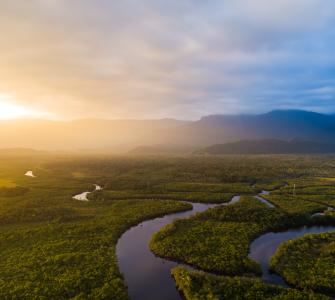Brazil’s six biomes — Amazon, Cerrado, Atlantic Forest, Caatinga, Pampa and Pantanal — play a critical role in biodiversity conservation, climate regulation, and sustainable development. These biomes face growing challenges, including deforestation, land degradation, and the urgent need for low-carbon agricultural practices. Despite Brazil’s national commitment to eliminate deforestation, restore 12 million hectares of native vegetation and recover 15 million hectares of degraded pastures by 2030, financial and structural barriers continue to limit progress.
This project, developed in partnership with the Brazilian government and supported by the World Bank through the Progreen Trust Fund, aims to make environmental regularization more economically viable for rural properties. By developing economic and financial models, the initiative will analyze the costs and potential revenues associated with restoration, compensation, and other mechanisms under Brazil’s Forest Code. The work covers properties of different sizes and profiles across all biomes, with a special focus on the Amazon and Cerrado.
In addition to modeling, the project will propose strategies to reduce costs and create incentives for environmental compliance. These include assessing financial instruments, structuring value chains for native seeds and seedlings, identifying opportunities for tax and credit incentives, and strengthening technical assistance for rural producers. The goal is to make restoration and sustainable production more accessible, attractive, and financially feasible.
By integrating economics into conservation, this initiative supports Brazil’s restoration and climate commitments while enabling rural producers to adopt sustainable practices. It represents an important step toward aligning environmental protection with agricultural productivity and long-term economic resilience.
Image: Shutterstock.com

